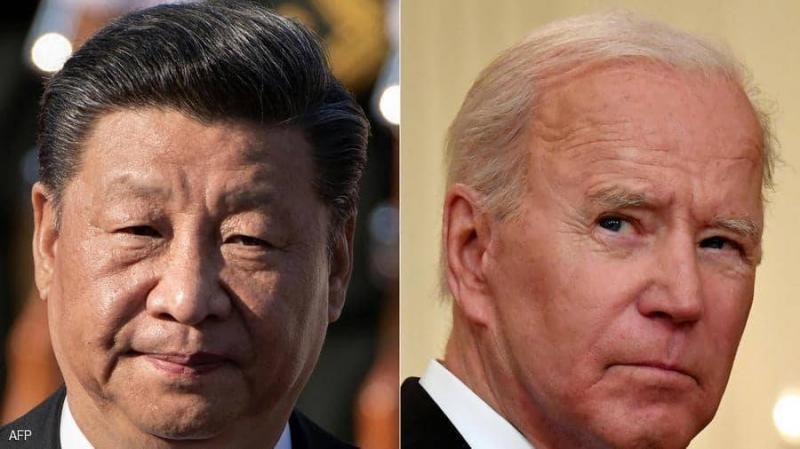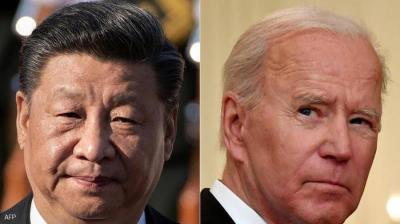U.S. President Joe Biden and his Chinese counterpart Xi Jinping will hold a video meeting on Monday, the third between the two leaders amid escalating disagreements between Washington and Beijing. The White House announced on Friday that Biden and Jinping will meet "in the evening" on November 15, confirming previously circulated media reports.
In a statement by White House Press Secretary Jen Psaki, the presidents "will discuss ways to manage competition (between the two countries) responsibly," and how to "work together when our interests align." Psaki clarified that Biden will be "clear and candid about what concerns" the United States regarding China, whose leader is often described as the strongest Chinese leader since Mao Zedong.
Jinping continues to reinforce his grip on the system, as evidenced by the Chinese Communist Party adopting a text on Thursday praising the president in celebration of the party's centennial. The text states that the "thought" of Beijing's strongman is the essence of "Chinese culture and spirit." It calls on "the party, the army, and the entire population to unite more closely around the central committee, of which Xi Jinping is the core."
The U.S. and Chinese presidents have previously spoken on the phone twice since Biden's inauguration. The U.S. president has never hidden his desire to meet the Chinese president in person, having criticized Xi for his absence from the G20 and COP26 summits. Biden will settle for a virtual meeting with Jinping, who has not left China in about two years, citing the outbreak of COVID-19.
Biden rejects the term "Cold War," preferring "competition" or "confrontation" with China. He has made competition with Beijing the centerpiece of his foreign policy. Relations between the world's two largest economies have deteriorated in recent weeks over several issues, from trade and human rights to China's regional ambitions, prompting Biden to strengthen his regional alliances in Asia.
Tensions have escalated recently regarding Taiwan's fate. Beijing has increased its military activities near Taiwan, the self-governing island that China considers an integral part of its territory. A record number of aircraft entered Taiwan's air defense identification zone in early October. Washington has repeatedly expressed support for Taiwan in the face of China's maneuvers, but the U.S. and China reached a surprising agreement on climate during the Glasgow summit.
In this context of rising tension, the meeting between the two presidents aligns with Washington's desire to keep "channels of communication" open at the highest levels, following recent ministerial-level communications that have not always gone well. Psaki stated on Friday that the White House is eager to establish a "relationship at the presidential level," but that this is "not because we are looking for tangible outcomes or decisions," rather to "define the terms of competition."
For his part, U.S. Secretary of State Antony Blinken said on Friday that "our relationship with China is one of our most important and complex." He added that "there are different dimensions: cooperation, competition, and confrontation, and we will work on these three aspects simultaneously," welcoming China's "some progress" on climate-related issues.




